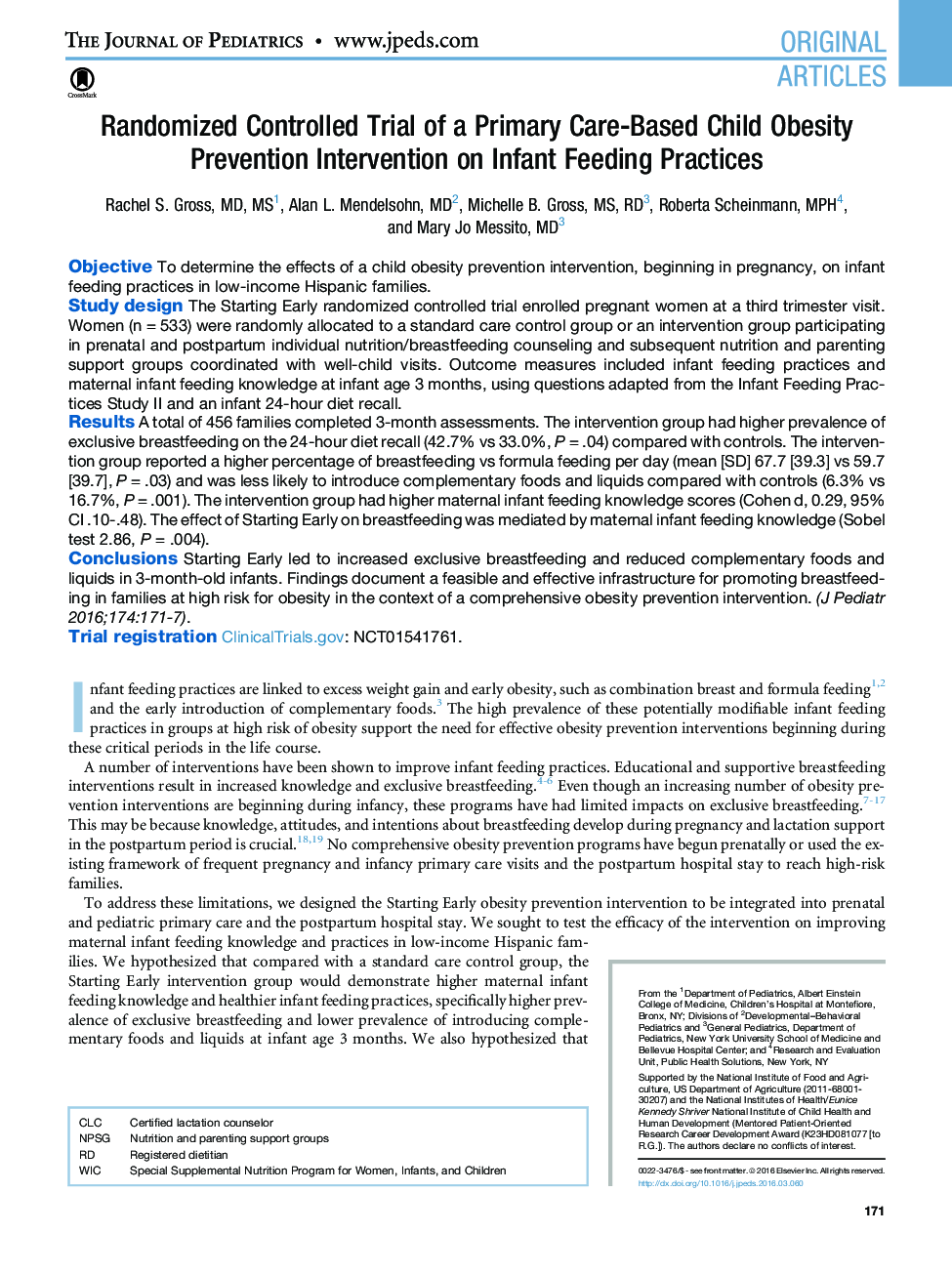| Article ID | Journal | Published Year | Pages | File Type |
|---|---|---|---|---|
| 6218936 | The Journal of Pediatrics | 2016 | 9 Pages |
ObjectiveTo determine the effects of a child obesity prevention intervention, beginning in pregnancy, on infant feeding practices in low-income Hispanic families.Study designThe Starting Early randomized controlled trial enrolled pregnant women at a third trimester visit. Women (n = 533) were randomly allocated to a standard care control group or an intervention group participating in prenatal and postpartum individual nutrition/breastfeeding counseling and subsequent nutrition and parenting support groups coordinated with well-child visits. Outcome measures included infant feeding practices and maternal infant feeding knowledge at infant age 3 months, using questions adapted from the Infant Feeding Practices Study II and an infant 24-hour diet recall.ResultsA total of 456 families completed 3-month assessments. The intervention group had higher prevalence of exclusive breastfeeding on the 24-hour diet recall (42.7% vs 33.0%, P = .04) compared with controls. The intervention group reported a higher percentage of breastfeeding vs formula feeding per day (mean [SD] 67.7 [39.3] vs 59.7 [39.7], P = .03) and was less likely to introduce complementary foods and liquids compared with controls (6.3% vs 16.7%, P = .001). The intervention group had higher maternal infant feeding knowledge scores (Cohen d, 0.29, 95% CI .10-.48). The effect of Starting Early on breastfeeding was mediated by maternal infant feeding knowledge (Sobel test 2.86, P = .004).ConclusionsStarting Early led to increased exclusive breastfeeding and reduced complementary foods and liquids in 3-month-old infants. Findings document a feasible and effective infrastructure for promoting breastfeeding in families at high risk for obesity in the context of a comprehensive obesity prevention intervention.Trial registrationClinicalTrials.gov: NCT01541761.
